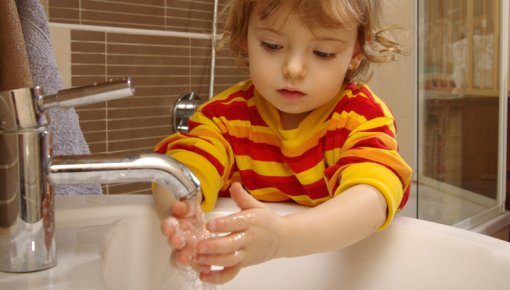Pneumonia in children: What you should know

Pneumonia can sometimes be hard to detect in children because they don't always have a cough, a fever or shortness of breath. What's more, the germs that are involved may be different from the ones that cause pneumonia in adults. Because of this, two vaccinations are recommended for children: one for Hemophilus bacteria and one for pneumococcal bacteria.
Pneumonia is more common in children than in adults. One reason for this is that their immune system is not yet fully developed. Also, germs like bacteria or viruses are easily passed from child to child – especially between the ages of three and six years. That is why infections are generally very common in children. Babies and children under the age of six are more likely to get pneumonia than schoolchildren and teenagers are.
Pneumonia generally doesn't lead to complications in children. But it can be life-threatening if a baby develops pneumonia directly after birth or a child is weakened due to another disease or malnutrition, for example. Globally, pneumonia is one of the most common causes of death in children, especially in poorer regions of the world.
